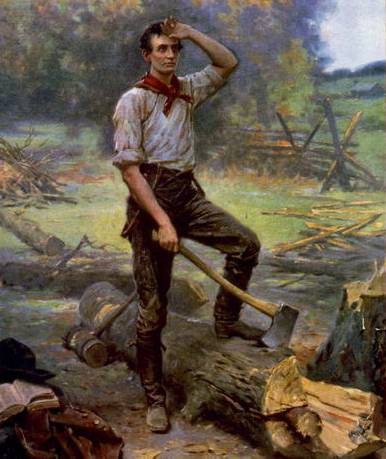ABRAHAM LINCOLN'S LETTER REGARDING SPEECH ON MEXICAN WAR
TO WILLIAM H. HERNDON.
WASHINGTON, February 1, 1848.
DEAR WILLIAM:—Your letter of the 19th ultimo was received last night, and for which I am much obliged. The only thing in it that I wish to talk to you at once about is that because of my vote for Ashmun's amendment you fear that you and I disagree about the war. I regret this, not because of any fear we shall remain disagreed after you have read this letter, but because if you misunderstand I fear other good friends may also. That vote affirms that the war was unnecessarily and unconstitutionally commenced by the President; and I will stake my life that if you had been in my place you would have voted just as I did. Would you have voted what you felt and knew to be a lie? I know you would not. Would you have gone out of the House—skulked the vote? I expect not. If you had skulked one vote, you would have had to skulk many more before the end of the session. Richardson's resolutions, introduced before I made any move or gave any vote upon the subject, make the direct question of the justice of the war; so that no man can be silent if he would. You are compelled to speak; and your only alternative is to tell the truth or a lie. I cannot doubt which you would do.
This vote has nothing to do in determining my votes on the questions of supplies. I have always intended, and still intend, to vote supplies; perhaps not in the precise form recommended by the President, but in a better form for all purposes, except Locofoco party purposes. It is in this particular you seem mistaken. The Locos are untiring in their efforts to make the impression that all who vote supplies or take part in the war do of necessity approve the President's conduct in the beginning of it; but the Whigs have from the beginning made and kept the distinction between the two. In the very first act nearly all the Whigs voted against the preamble declaring that war existed by the act of Mexico; and yet nearly all of them voted for the supplies. As to the Whig men who have participated in the war, so far as they have spoken in my hearing they do not hesitate to denounce as unjust the President's conduct in the beginning of the war. They do not suppose that such denunciation is directed by undying hatred to him, as The Register would have it believed. There are two such Whigs on this floor (Colonel Haskell and Major James) The former fought as a colonel by the side of Colonel Baker at Cerro Gordo, and stands side by side with me in the vote that you seem dissatisfied with. The latter, the history of whose capture with Cassius Clay you well know, had not arrived here when that vote was given; but, as I understand, he stands ready to give just such a vote whenever an occasion shall present. Baker, too, who is now here, says the truth is undoubtedly that way; and whenever he shall speak out, he will say so. Colonel Doniphan, too, the favorite Whig of Missouri, and who overran all Northern Mexico, on his return home in a public speech at St. Louis condemned the administration in relation to the war. If I remember, G. T. M. Davis, who has been through almost the whole war, declares in favor of Mr. Clay; from which I infer that he adopts the sentiments of Mr. Clay, generally at least. On the other hand, I have heard of but one Whig who has been to the war attempting to justify the President's conduct. That one was Captain Bishop, editor of the Charleston Courier, and a very clever fellow. I do not mean this letter for the public, but for you. Before it reaches you, you will have seen and read my pamphlet speech, and perhaps been scared anew by it. After you get over your scare, read it over again, sentence by sentence, and tell me honestly what you think of it. I condensed all I could for fear of being cut off by the hour rule, and when I got through I had spoken but forty-five minutes.
Yours forever,
A. LINCOLN.


